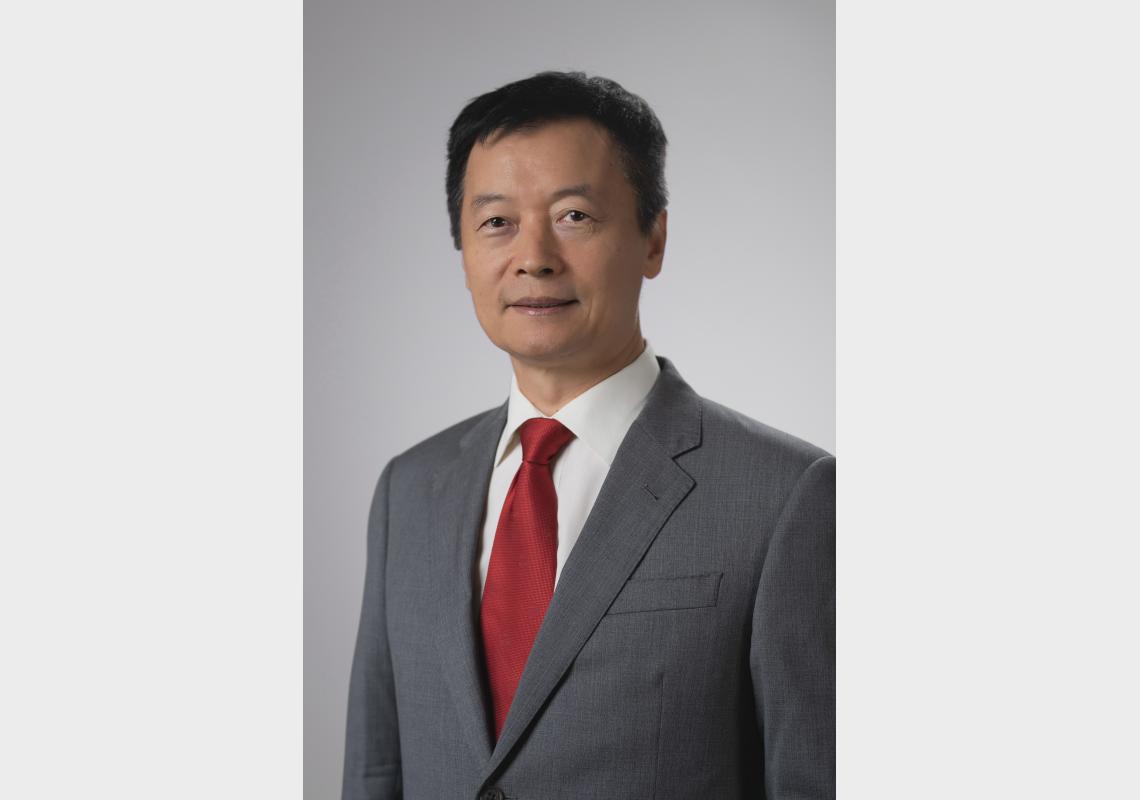Lingnan University President S. Joe Qin elected a Member of the European Academy of Sciences and Arts.
Prof S. Joe Qin, President and Wai Kee Kau Chair Professor of Data Science of Lingnan University, has been elected a Member of the European Academy of Sciences and Arts (EASA) in the Technical and Environmental Sciences class, making him the first scholar from Lingnan to receive this prestigious honour. Prof Klaus Mainzer, President of the European Academy of Sciences and Arts, extended his congratulations to President Qin. This recognition follows Prof Qin's election as a Fellow of the National Academy of Inventors, marking another distinguished membership in a globally renowned scientific academy.
EASA is one of the world's leading scientific academies, with the highest proportion of Nobel laureates among its Fellows. The 32 Nobel Prize laureates include Emmanuelle Charpentier, a recipient of the 2020 Nobel Prize in Chemistry for groundbreaking work in gene editing, Klaus Hasselmann, a laureate of the 2021 Nobel Prize in Physics, Anton Zeilinger, who was awarded the 2022 Nobel Prize in Physics, and Ferenc Krausz, a laureate of the 2023 Nobel Prize in Physics.
Prof S. Joe Qin, President and Wai Kee Kau Chair Professor of Data Science of Lingnan University, said " I am deeply honoured to have been elected a member of the European Academy of Sciences and Arts. As an engineering and data science expert, I am committed to advancing scientific knowledge, leveraging the power of data, and applying engineering principles to address pressing global environmental challenges. I look forward to working closely with fellow members to create innovative solutions that impact wider society positively."
An internationally renowned engineering and data science expert, Prof Qin has won international recognition for his pioneering research in areas ranging from automation and engineering to technology and data science. Prof Qin was admitted to Beijing’s prestigious Tsinghua University at the age of 16 to study automation, and obtained his B.S. and M.S. degrees there before moving to the United States in 1989 to take up a full scholarship to pursue a PhD in chemical engineering at the University of Maryland, College Park, which he completed in 1992. Prof Qin has received numerous international awards for his contributions to data-driven control engineering. He is a Fellow of the U.S. National Academy of Inventors, a Fellow of the International Federation of Automatic Control (IFAC), an AIChE Fellow, and an IEEE Fellow. He received the 2022 CAST Computing in Chemical Engineering Award from the American Institute of Chemical Engineers (AIChE) and the 2022 IEEE CSS Transition to Practice Award. He is the first and only recipient of both awards from Greater China to date. In his early career, he received the U.S. National Science Foundation CAREER Award, the 2011 Northrop Grumman Best Teaching award at Viterbi School of Engineering, the DuPont Young Professor Award, the Halliburton/Brown & Root Young Faculty Excellence Award, the NSF-China Outstanding Young Investigator Award, the MOE-China Changjiang Professorship, and the IFAC Best Paper Prize for a model predictive control paper published in Control Engineering Practice.
Prof Qin has authored over 470 international journal papers, book chapters, and conference papers, as well as delivering speeches at global conferences and invited talks. He holds 12 US patents for his inventions. He has chaired more than 120 invited seminars in the industry and at technical conferences, and conducted 26 short courses or workshops. His h-index in Web of Science, SCOPUS, and Google Scholar stands at 67, 74, and 86, respectively. According to Google Scholar, his research has been cited over 38,600 times.
About the European Academy of Sciences and Arts
The European Academy of Sciences and Arts is a non-governmental European association promoting cross-disciplinary collaboration and promoting academic advancement and exchange within European countries and globally. It particularly encourages the integration of science, technology, and the humanities, enjoying a distinguished academic reputation in both scientific and artistic domains. Established in 1990, the Academy brings together over 2000 scientists of all disciplines, leading artists and practitioners of governance, among them 32 Nobel Prize laureates. They are divided into seven classes: Humanities, Medicine, Arts, Natural Sciences, Social Sciences, Law and Economics, Technical and Environmental Sciences and World Religions.



